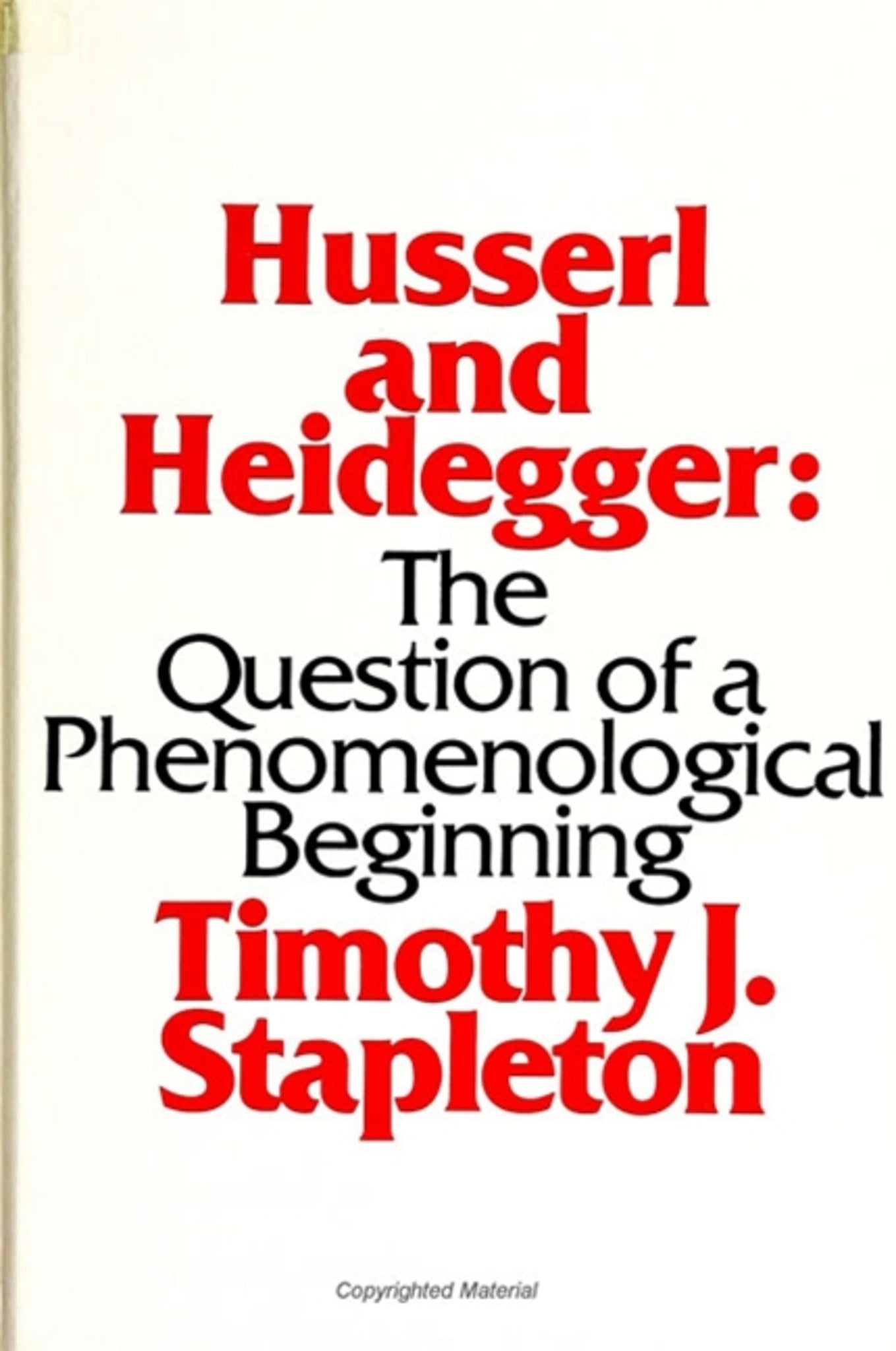We're sorry. An error has occurred
Please cancel or retry.
Husserl and Heidegger

Some error occured while loading the Quick View. Please close the Quick View and try reloading the page.
Couldn't load pickup availability
- Format:
-
30 June 1984

The phenomenology of Edmund Husserl has decisively influenced much of contemporary philosophy. Yet Husserl's philosophy has come under such criticism that today it is viewed as little more than a historical relic. One of the most important and influential critiques of Husserl's transcendental phenomenology was launched by Martin Heidegger in Being and Time, which radically reinterpreted phenomenology.
Timothy Stapleton returns to the origin of phenomenology to provide a clear, concise perspective on where it has been and on where it ought to be heading. This book is a careful reexamination of the internal development of Husserl's thought as well as of the ways in which Heidegger used and transformed the phenomenological method. It begins with an interpretation of the "transcendental" dimension of Husserl's philosophy, stressing the importance of the ontological rather than the epistemological problematic in determining the unfolding of Husserlian thought. The work progresses to an account of Heidegger's early works, viewed as a radicalization of Husserl's phenomenology both in name and substance. Stapleton concludes by contrasting a transcendental origin with a hermeneutic beginning point in terms of their respective ideals of intelligibility, meaning, and being; and then looks at some of the consequences of the idea of a hermeneutic philosophy.


Acknowledgments
Introduction: The Nature of the Problem
Chapter
1. Absolute Consciousness in Ideas I
The Prephilosophical and Philosophical Attitudes
The Problem of the Reduction
The Way to the Reduction in Ideas I
The Absolute of Consciousness
2. Philosophical Science and the Idea of Evidence
That Which Makes a Beginning Possible
The Question of the Beginning
The Beginning of Philosophy
3. Toward a Logic of the Transcendental Reduction
The Concept of Foundation
Transcendental Subjectivity as Absolute Concretum
Thing, World, and Transcendental Subjectivity
Motives for the Transcendental Turn
4. Transcendental Subjectivity and Being-in-the-World
Intentionality
The "Subjective" Turn in Husserl and Heidegger
Posing the Question of Being
Transcendence and World
5. Phenomenological Beginnings
A Summary
A Transcendental or Hermeneutic Beginning?
Notes
Selected Bibliography
Index



